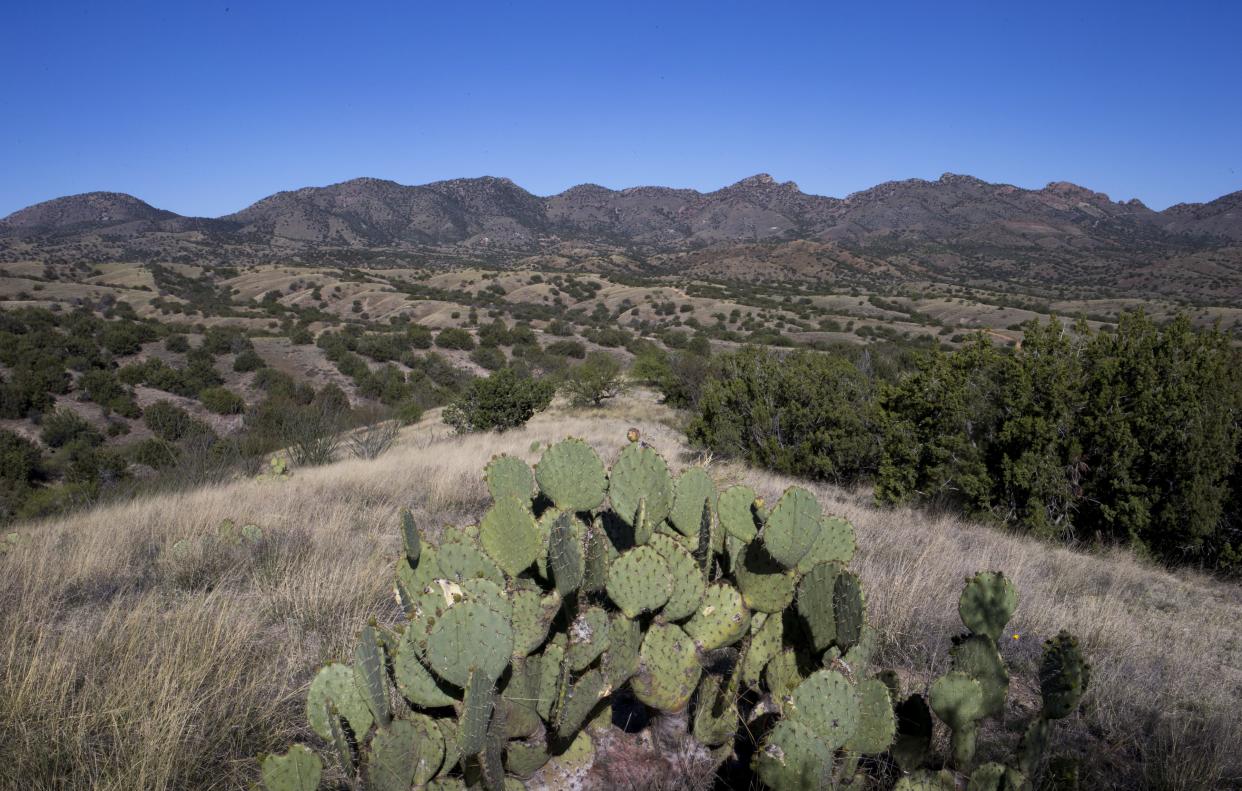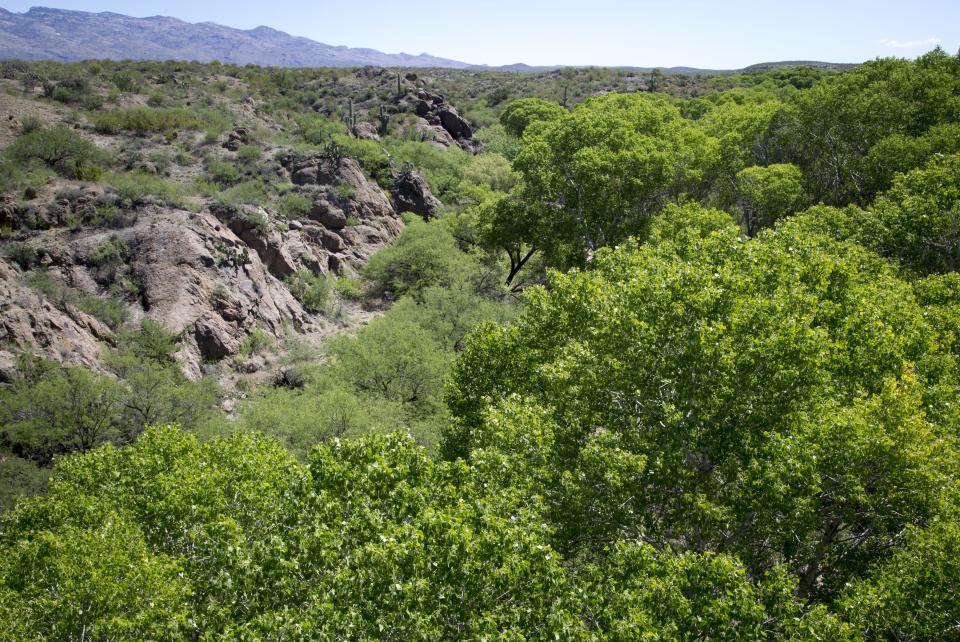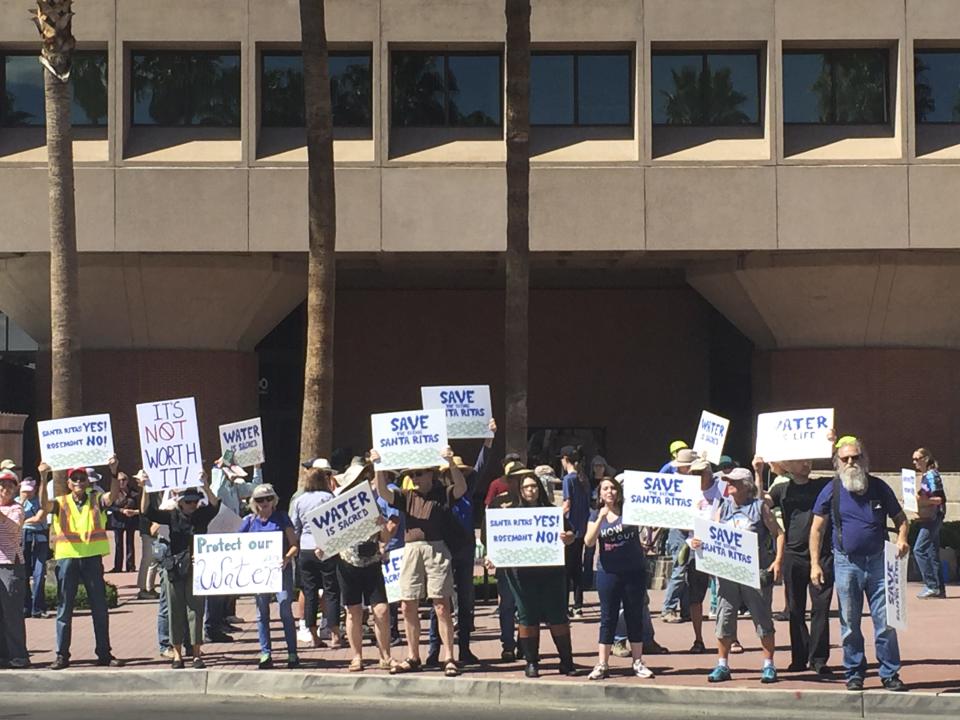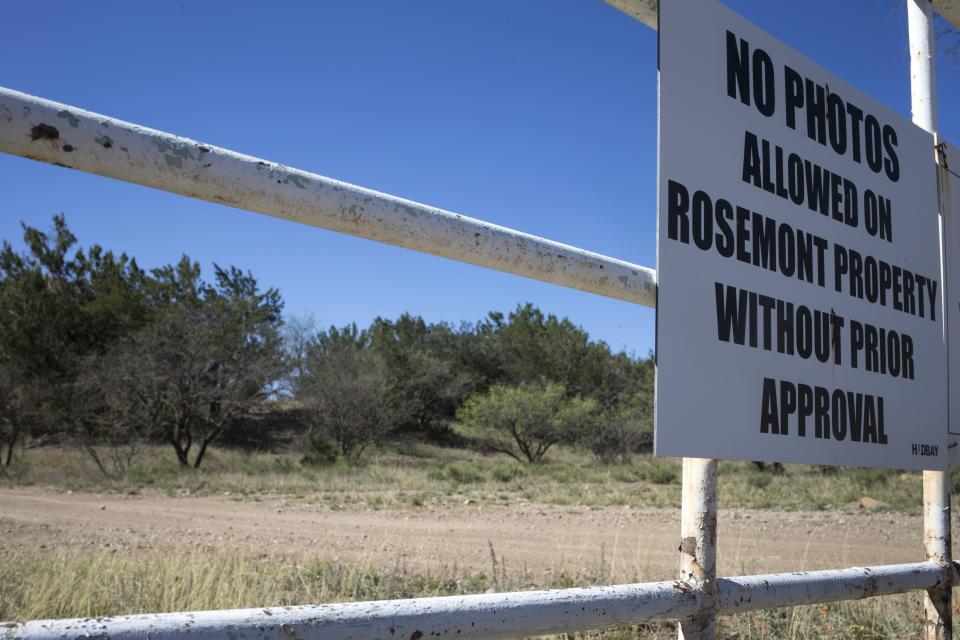Why critics fear a copper mining company is skirting key water rules in Arizona

Toronto-based mining company Hudbay Minerals surrendered a key operational permit and started mining operations for its Copper World project on the west slope of the Santa Rita Mountains near Tucson in what opponents say is an unorthodox and illegal move.
Hudbay has fought for years to keep three key federal permits needed to begin mining work in the Santa Ritas. But recent developments seemed to put those permits, for both the Rosemont mine and Copper World project, farther out of reach for the international mining firm.
Hudbay plans to extract copper ore in both locations. The Copper World project would sit mostly on private land and the Rosemont mine on a mix of private and public lands. Both mines require operational permits from federal agencies.
While it might be more common for a company to receive a permit and then start mining operations before a court rejects the permit, an attorney for some of the mine's opponents called the surrendering of a permit novel.
"There is no legal basis. It's totally manufactured," said Stu Gillespie, who represents several tribal nations trying to block the projects. "I mean, just imagine if a company could unilaterally surrender a permit, and then say it's no longer enforceable. That would eviscerate the Clean Water Act ... They know very well that there's no basis."

The three key permits consist of a permit to dump tailings, or mine waste, on public lands, granted by the U.S. Forest Service; an Endangered Species Act Section 7 take permit to potentially harm endangered species, authorized by the U.S. Fish and Wildlife Service; and a Clean Water Act Section 404 permit to discharge fill material, or soil, rocks and pollutants, into regulated waterways, issued by the U.S. Army Corps of Engineers.
An appeals court upheld a previous decision that one of those permits went beyond what was allowed, while another permit is still being reviewed in court. Hudbay surrendered the Clean Water Act permit earlier this month.
Court ruling raises questions
Hudbay intends to mine on part of the east and west slopes of the Santa Rita Mountains. The company said its Rosemont mine on the east slope would produce over 5 billion pounds of copper and create up to 600 direct jobs and 2,500 indirect jobs for the 19 years it’s set to operate.
The company is still determining how much copper and how many jobs might come from its newer Copper World project, on the west slope of the Santa Ritas.
A key difference is that the Rosemont mine is partially located on federal land, and most of the Copper World project is on private land, which Hudbay bought in a series of purchases over the last few years.

On Thursday an appeals court upheld U.S. District Judge James Soto’s 2019 decision that the Forest Service acted “arbitrarily and capriciously” in approving Hudbay’s entire mining plan of operations. In a 2-1 decision, the court said Hudbay has valid rights to mine on the land where its 3,000-foot deep and 6,500-foot wide pit would operate, private land that Hudbay purchased, but the 1872 Mining Law doesn’t give it permission to permanently dump mine waste on public Forest Service lands.
“Today's split decision is based on specific language used by the Forest Service in its Final EIS (2013) and Final ROD (2017) for the Rosemont Project,” Hudbay wrote in a statement to The Arizona Republic. “Hudbay is evaluating next steps for Rosemont with regards to this decision. In any event, the decision doesn't impact the company's plans to advance its Copper World project.”
Hudbay has also appealed a U.S. District Court’s rejection of its Fish and Wildlife permit. And earlier this month, Hudbay surrendered its Clean Water Act permit, arguing that it was then no longer subject to a court ruling.

“Because Rosemont has surrendered the Permit — rendering it void and without effect— Plaintiffs’ claims challenging the Corps’ actions in issuing that Permit are moot,” Hudbay’s attorneys wrote in a letter to the court. “Indeed, no effective judicial relief can be provided because there is no Clean Water Act permit to address.”
In that same letter, Hudbay’s attorneys referred to a previous case in which the judge ruled against an injunction to stop a power plant from polluting the Hudson River, since the plant had surrendered its discharge permit.
But the plant had also dismantled its station, so it couldn’t physically discharge any pollutants, said Gillespie, the attorney.
Company has started site work
Last year, the Army Corps determined Hudbay didn’t need a Clean Water Act permit after the Trump Administration ruled that ephemeral streams — or streams that flow only after rain — don’t count as “waters of the United States,” a legal description of a waterway.
The EPA criticized the Army Corps’ decision, classifying some streams as “intermittent,” meaning they flow seasonally, instead of ephemerally, according to the Arizona Daily Star. And in August 2021, a district court ruled that the Trump ephemeral streams regulation suffered from fundamental flaws and therefore had to be thrown out.
Which wildfires are threatening Arizona right now? Download the free azcentral.com app for the latest news.
According to drone images released in court filings, Hudbay has started filling streams that feed into the Santa Cruz River even without a Clean Water Act permit. The drone images, captured by a Center of Biological Diversity employee on four separate dates in April, show several dump trucks and bulldozers filling streams with what appears to be gravel.
Hudbay notified Pima County in late March that it would commence operations on its Copper World project. The company notified the Army Corps that it surrendered the Clean Water Act permit in a formal letter on April 28, according to company lawyers.
Gillespie, one of the attorneys representing the Tohono O’odham Nation, Pascua Yaqui Tribe and Hopi Tribe in the suit against Hudbay and the Army Corps, maintains that Hudbay’s filling of streams and washes is illegal. They’re still awaiting a decision from the judge.
Hudbay is also fighting battles for permits at the state level, including for an extension of their certificate of environmental compliance from the Arizona Corporation Commission. The certificate will allow the company to build a utility corridor, but several environmental groups and tribal nations have opposed it.
Zayna Syed is an environmental reporter for The Arizona Republic/azcentral. Follow her reporting on Twitter at @zaynasyed_ and send tips or other information about stories to zayna.syed@arizonarepublic.com.
Environmental coverage on azcentral.com and in The Arizona Republic is supported by a grant from the Nina Mason Pulliam Charitable Trust. Follow The Republic environmental reporting team at environment.azcentral.com and @azcenvironment on Facebook, Twitter and Instagram.
Support local journalism. Subscribe to azcentral.com today.
This article originally appeared on Arizona Republic: After legal setbacks on Rosemont mine, copper company starts work

